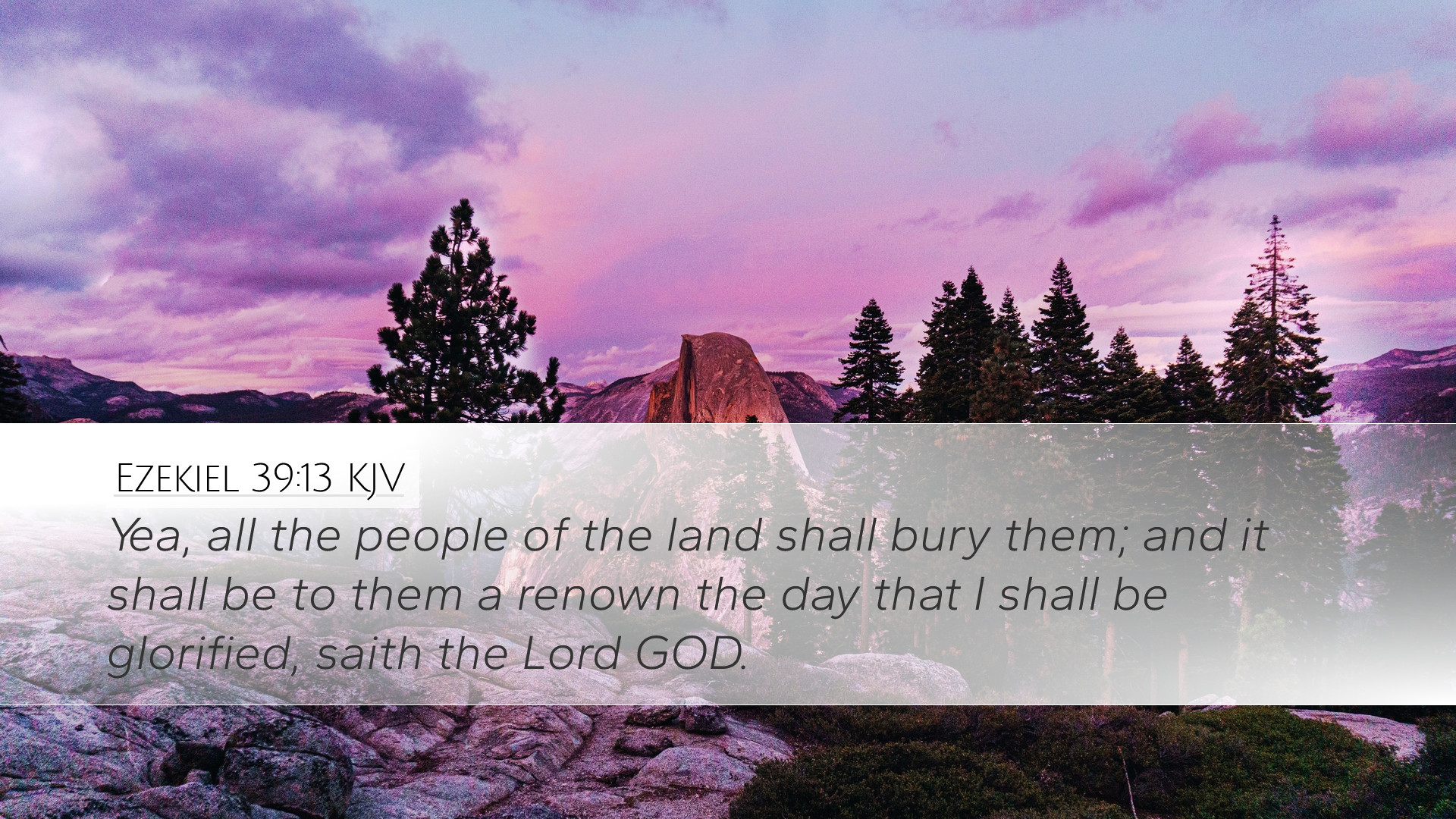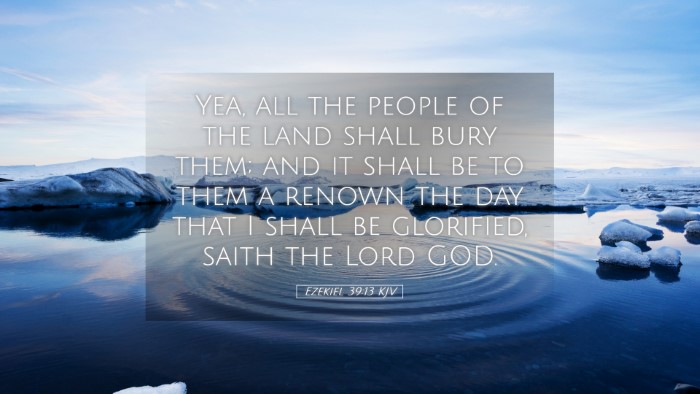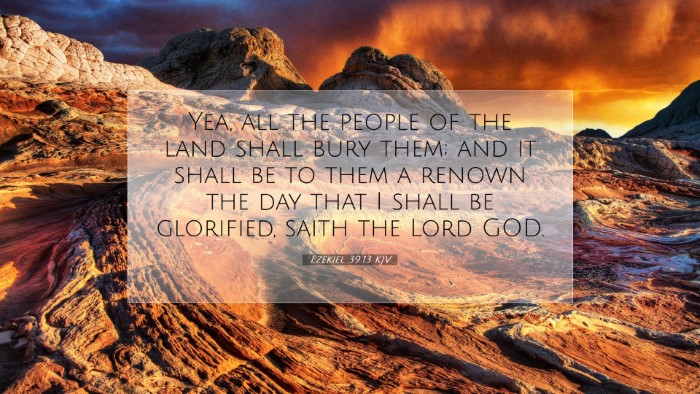Ezekiel 39:13 Commentary
Verse Context: Ezekiel 39:13 states: "Yes, all the people of the land shall bury them, and it shall be to their renown on the day that I am glorified, says the Lord God." This verse falls within a prophetic vision concerning the defeat of Gog and Magog, symbolizing the enemies of God's people.
Historical and Theological Background
This chapter is part of a larger passage that articulates God's promises of restoration and judgment. The defeat of Gog reflects God's sovereignty over the nations and His commitment to His chosen people. It serves a dual purpose: clarifying God’s power and paving the way for Israel's restoration.
The Role of Burial in Ancient Israel
- Cultural Significance: In ancient cultures, burial practices were deeply tied to honor and memory. The act of burying the dead was seen as a sacred duty.
- Communal Responsibility: The involvement of the people in burying the dead signifies a collective responsibility, drawing parallels to their communal identity and duty before God.
The Meaning of "Renown"
The term "renown" implies recognition and honor. God promises that this act of burial will enhance His glory and serve as a testament to His power. Matthew Henry emphasizes that such acts glorify God's name and serve to remind the people of His providential care.
Implications for God's People
- Reinforcement of Faith: For the Israelites, witnessing God’s judgment on their enemies reinforces their faith and trust in divine justice.
- Call to Holiness: The act of burying suggests a call to purity and the need for the Israelites to maintain holiness, as they partake in the burial of those who opposed God.
Theological Reflections
The primary reflection here is on God’s nature and His ultimate control over history. The burial not only signifies judgment but also has eschatological implications, anticipating a future restoration of Israel.
Commentary Insights
Matthew Henry
Henry notes that this verse illustrates how God will be glorified among nations, highlighting His sovereignty. He emphasizes that God’s judgments serve a dual purpose: punishment for the wicked and a reminder to the righteous of God’s holiness.
Albert Barnes
Barnes expounds that the act of burial by "all the people of the land" suggests a divine orchestration in which God's people partake in fulfilling prophetic declarations. This collective act embodies their role in establishing God's renown and maintaining covenant identity.
Adam Clarke
Clarke adds a deeper theological nuance, reflecting upon the implications of God's glory being displayed through judgment. He asserts that the fulfillment of such prophecy not only solidifies God's reputation among the nations but also establishes a moral framework for the community by which they understand justice and righteousness.
Conclusion
The profound message of Ezekiel 39:13 transcends its immediate context, calling readers, theologians, and pastors to reflect on God's sovereignty, the nature of divine judgment, and the importance of collective actions in establishing and remembering divine truths. God’s promise that this will be to their renown serves as an encouragement that in all things, He is working towards His glory and the ultimate good of His people.


